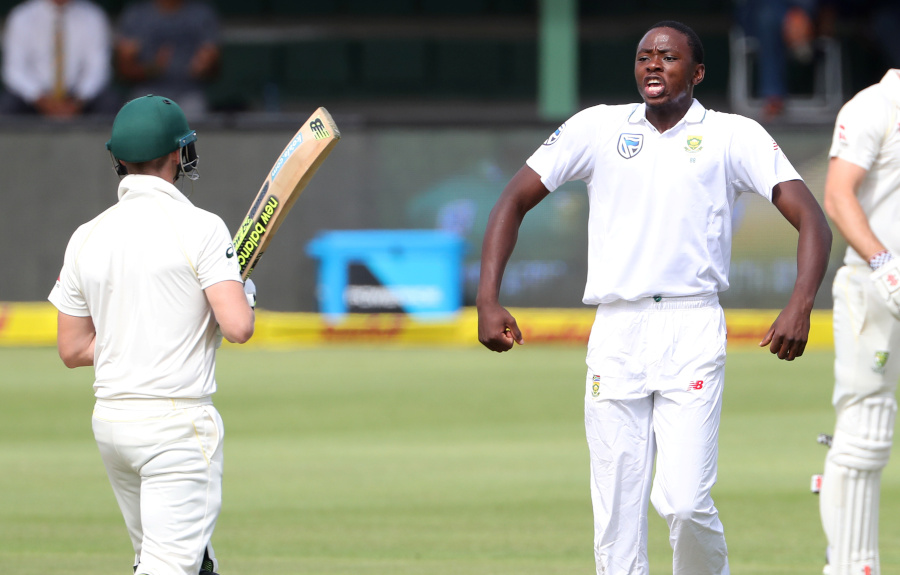As a two-Test series against the West Indies looms on the cricket horizon, the Proteas will need Kagiso Rabada performing at his ferocious best, writes CRAIG LEWIS.
On 25 May, Rabada will turn just 26 years old.
The prospect of what he can still achieve in the game is mind-boggling considering his relative youth and all the natural talents we have seen on display over the past few years.
And yet, if there is a question about ‘Just how much better he can become?’, the answer will surely be: ‘A lot.’
Only so much can be read into official player rankings, particularly considering how lopsided the length of series and tour scheduling is in the modern game, with the ‘big three’ of India, England and Australia holding so much power.
But for those who do pay attention to such rankings, it doesn’t make for pretty reading to see Rabada hovering down in ninth place in the official Test-bowler rankings, one spot below pedestrian medium-pacer Jason Holder.
He is, after all, a lot better than that.
To digress briefly, but for good reason, it was in early 2020 – and before the sporting world was thrown into turmoil due to the pandemic – that Rabada opened up about the disappointment he felt after being suspended by the ICC for the fourth and final Test against England at the Wanderers.
He received one demerit point and was also fined for an arguably overzealous celebration after bowling England captain Joe Root on day one of the third Test at St George’s Park in Port Elizabeth.
He had accumulated four demerit points over a 24-month period, resulting in this one-Test ban. Rabada had previously been sanctioned for similar infractions against Australia batsmen Steve Smith and David Warner.
‘It can’t keep happening, because I’m letting the team down and I’m letting myself down. It just can’t keep happening and that’s why it hurts so much,’ said Rabada.
To rewind, there was of course the much-publicised two-match suspension against Australia in 2018, which was ultimately overturned after brushing shoulders with Smith.
In 2017, Rabada was also suspended for one Test against England last summer following an altercation with Ben Stokes.
‘I look back and I acknowledge I’ve lost control in the past,’ Rabada subsequently admitted in an interview. ‘It’s about finding that balance. I can still be that aggressive bowler who intimidates. But I’ve learned to pick my moments. It takes a sound, steady mind to maintain the balance and I’m more mature now.’
What I just can’t help but wonder is whether these indiscretions of the past haven’t in some way muted Rabada into a fast-bowling version of himself that is now more mindful of his reactions, rather than just allowing his emotions and passion to be fully expressed.
When you think of the vein-popping celebrations of Dale Steyn, the patent aggression of Allan Donald, the no-holds-barred approach of Andre Nel, and it suddenly becomes clear that Rabada is operating in a far more sensitive and watered-down modern-day environment.
So much lip service is paid to the concept of ensuring sportspeople have the freedom to express their personalities and to ensure the game doesn’t become ‘robotic’, but even subconsciously Rabada must have become aware that he is operating under a microscope of ‘behaviour watch’.
No one wants to see celebrations cross a line or go against the spirit of the game, but when we see Rabada steaming in against the West Indies in June, wouldn’t it be fantastic to see him doing so with all the fire and brimstone so evident when he was bowling with the freedom and high speeds of a typically fiery fast bowler?
Rabada, and only Rabada, will really know whether these past brushes with cricket’s law enforcers have quelled some of his fast bowling ‘spirit’, but the tour of West Indies presents the perfect opportunity to rediscover his ‘Proteas fire’.







